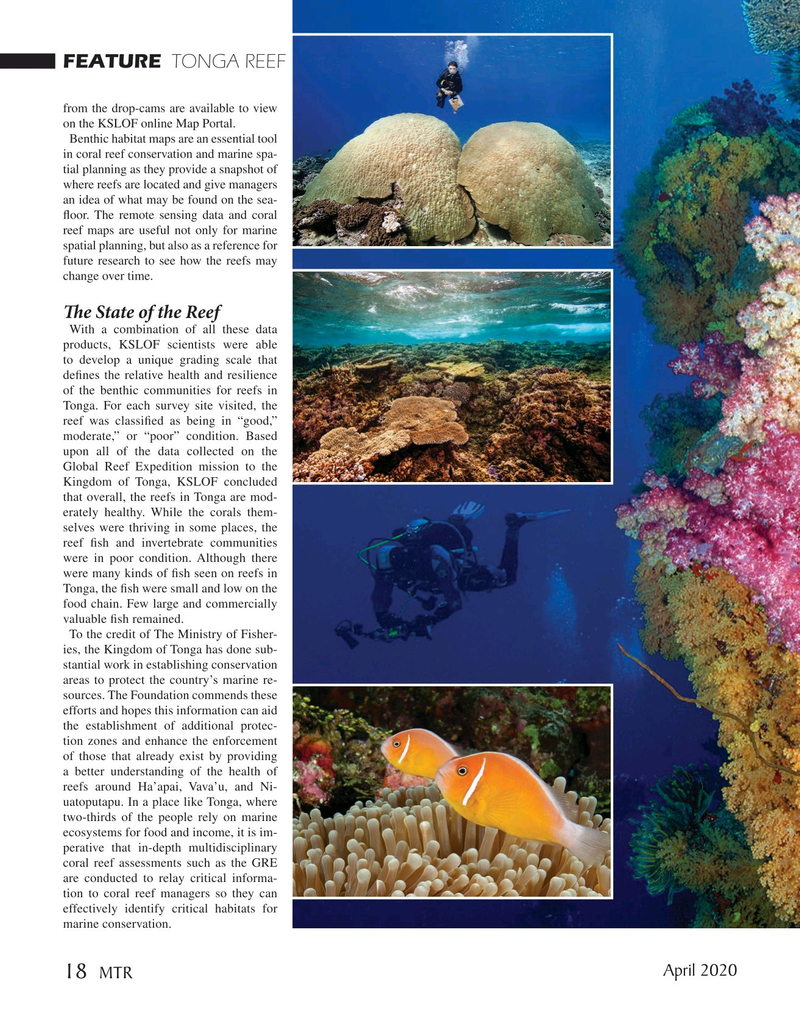
Page 18: of Marine Technology Magazine (April 2020)
Read this page in Pdf, Flash or Html5 edition of April 2020 Marine Technology Magazine
FEATURE TONGA REEF from the drop-cams are available to view on the KSLOF online Map Portal.
Benthic habitat maps are an essential tool in coral reef conservation and marine spa- tial planning as they provide a snapshot of where reefs are located and give managers an idea of what may be found on the sea- foor. The remote sensing data and coral reef maps are useful not only for marine spatial planning, but also as a reference for future research to see how the reefs may change over time.
Te State of the Reef
With a combination of all these data products, KSLOF scientists were able to develop a unique grading scale that defnes the relative health and resilience of the benthic communities for reefs in
Tonga. For each survey site visited, the reef was classifed as being in “good,” moderate,” or “poor” condition. Based upon all of the data collected on the
Global Reef Expedition mission to the
Kingdom of Tonga, KSLOF concluded that overall, the reefs in Tonga are mod- erately healthy. While the corals them- selves were thriving in some places, the reef fsh and invertebrate communities were in poor condition. Although there were many kinds of fsh seen on reefs in
Tonga, the fsh were small and low on the food chain. Few large and commercially valuable fsh remained.
To the credit of The Ministry of Fisher- ies, the Kingdom of Tonga has done sub- stantial work in establishing conservation areas to protect the country’s marine re- sources. The Foundation commends these efforts and hopes this information can aid the establishment of additional protec- tion zones and enhance the enforcement of those that already exist by providing a better understanding of the health of reefs around Ha’apai, Vava’u, and Ni- uatoputapu. In a place like Tonga, where two-thirds of the people rely on marine ecosystems for food and income, it is im- perative that in-depth multidisciplinary coral reef assessments such as the GRE are conducted to relay critical informa- tion to coral reef managers so they can effectively identify critical habitats for marine conservation. April 2020 18 MTR

 17
17

 19
19
